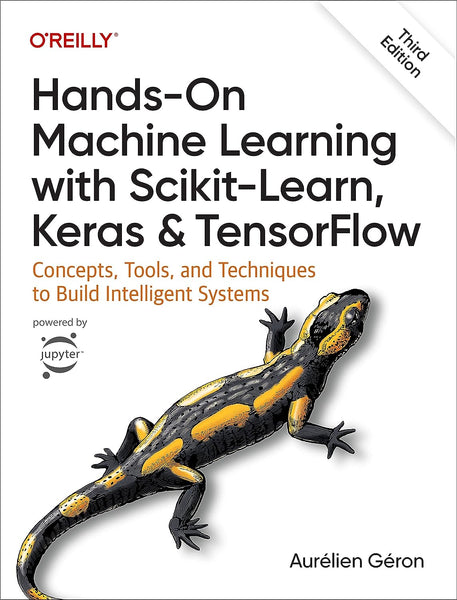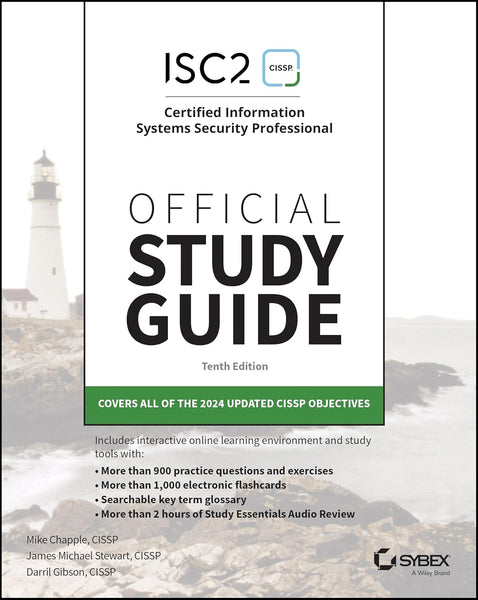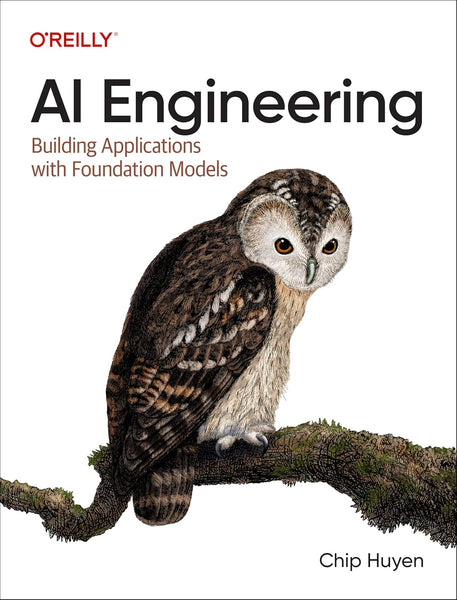Introduction to Machine Learning with Python: A Guide for Data Scientists by Andreas C Müller
- Publisher: COMPUTER SCIENCE
- Availability: In Stock
- SKU: 43722
- Number of Pages: 398
Rs.920.00
Rs.1,150.00
Tags: Algorithm Development , Artificial Intelligence , best books , Best Selling Books , Big Data , Classification , Clustering , Cross-Validation , Data Analysis , Data Mining , Data Science , Data Science Techniques , Data Science Tools , Data Visualization , Decision Trees , Deep Learning , Dimensionality Reduction , Ensemble Methods , Feature Engineering , good books , Hyperparameter Tuning , Introduction to Data Science , Introduction to Machine Learning , Jupyter Notebooks , Keras , Machine Learning , Machine Learning Algorithms , Machine Learning Applications , Machine Learning Techniques , Machine Learning with Pytho , Model Deployment , Model Evaluation , Model Interpretation , Natural Language Processing , Neural Networks , NumPy , Pandas , Programming Tutorials , Python Data Analysis. , Python for Data Science , Python for Machine Learning , Python Libraries , Python Libraries for Data Science , Python Programming , Regression , Reinforcement Learning , Scikit-Learn , Statistical Analysis , Supervised Learning , Support Vector Machines , TensorFlow , Unsupervised Learning
Introduction to Machine Learning with Python: A Guide for Data Scientists
Authors: Andreas C. Müller, Sarah Guido
Binding: Paperback
Paper Quality: white paper
Category: Data Science / Machine Learning / Artificial Intelligence
Recommended For: Python programmers, data science students, ML beginners, BS/MS Computer Science students, AI enthusiasts
Key Features of the Book
-
Focus on Python and scikit-learn
The book uses Python as the primary programming language for machine learning tasks, with a focus on the scikit-learn library. Scikit-learn is one of the most widely used libraries for machine learning in Python, providing easy-to-use tools for building machine learning models, preprocessing data, and evaluating algorithms. -
Clear Introduction to Key Machine Learning Concepts
The book starts with an introduction to supervised and unsupervised learning, giving readers a solid foundation in the core types of machine learning. It then delves into key concepts such as classification, regression, clustering, and model evaluation. -
Hands-on Implementation
Throughout the book, you’ll find practical examples and hands-on exercises that walk you through the process of implementing machine learning algorithms. These exercises help reinforce key concepts and give you the experience needed to apply machine learning techniques in real-world projects. -
Data Preprocessing Techniques
The book covers crucial data preprocessing techniques, including handling missing data, feature scaling, categorical encoding, and data splitting. These are vital skills for any data scientist to prepare raw data before feeding it into a machine learning model. -
Model Evaluation and Tuning
The book explains how to properly evaluate machine learning models using metrics like accuracy, precision, recall, and F1-score. It also covers important techniques for hyperparameter tuning, like grid search and cross-validation, to optimize model performance. -
Supervised Learning Algorithms
The book explains common supervised learning algorithms, such as linear regression, logistic regression, decision trees, random forests, and support vector machines. It walks you through the process of training models, making predictions, and interpreting results. -
Unsupervised Learning Algorithms
The book also explores unsupervised learning, including clustering techniques like K-means and dimensionality reduction techniques like Principal Component Analysis (PCA), which are valuable for dealing with unlabelled data. -
Working with Real-world Data
In addition to theoretical discussions, the book focuses on working with real-world data, teaching readers how to deal with common challenges such as noisy data and imbalanced datasets, which often occur in practical machine learning tasks. -
Introduction to Neural Networks
While the primary focus is on classical machine learning methods, the book also provides an introductory overview of neural networks and how deep learning can be applied using tools like Keras and TensorFlow. -
Clear, Structured Approach
The book is structured in a way that builds knowledge progressively. Each chapter introduces new concepts and techniques, with exercises and real-world examples that gradually increase in complexity, making it easy for readers to follow along and build on what they’ve learned.
Conclusion
Introduction to Machine Learning with Python is an excellent resource for those who want to dive into machine learning using Python. It offers clear explanations of both theoretical concepts and practical implementations, making it a great starting point for anyone looking to build machine learning models. The focus on Python and scikit-learn, along with hands-on exercises, ensures that readers gain a solid understanding of machine learning techniques that can be applied to real-world problems.
════ ⋆★⋆ ═══
Writer ✤ Andreas C Müller (Author), Sarah Guido (Author)

























